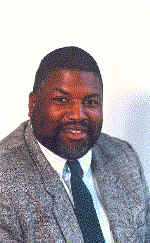History of Educational Opportunity Program Center
Funded by a federal initiative through the U.S. Department of Education, to assure low income and minority students equal access to institutions of higher learning. Upward bound, one of the oldest TRIO Programs, is a highly successful, college based program of rigorous academic instruction, individual tutoring and counseling for low-income, disadvantaged high school students, most of whom are the first generation of their families to consider post secondary education.
The USC Upward bound Project began during the 1977-1978 academic year. The initial project provided services to four target schools. Currently, the project provides services to the following seven secondary schools. Crenshaw, Dorsey, Fremont, Jefferson, Los Angeles, and Manual Arts. The current project consists of a thirty-week academic support program conducted on selected Saturdays at the USC campus for one hundred and thirty-two participants. The Project also provides a residential experience for eighty participants and a commuter program for fifty-two participants.
A 1981 study found that overall more than 90 percent of Upward bound graduates enter institutions of higher learning and are more than twice as likely to enroll in four-year post secondary institutions as students from similar backgrounds. Four years after high school graduation, Upward bound graduates were four times as likely to have earned an undergraduate degree as students from similar backgrounds who did not participate in Upward bound.
A more recent longitudinal study of Upward bound students at the University, 60 to 68 percent of the group of Upward bound graduates had received post secondary degrees or were still in college. That compares to 44 to 47 percent of the general incoming college population, who had graduated or were still in school five years later. Only 27percent of a group similar in socioeconomic background to the group of Upward bound students had graduated or were still in school five years later.
The program currently service 132 students' ages 13-19, including physically challenged students, through two program components the first is a six-week summer residential program. Students live in dormitories and take classes on campus. They can receive credit in reading and/or writing. Instruction in mathematics and natural sciences also is provided the second component consists of classes given on Saturdays during the academic year. Mathematics, science, writing and reading are emphasized. College preparation seminars are offered, as well as tutoring by USC students. Cultural enrichment activities enhance the program.
